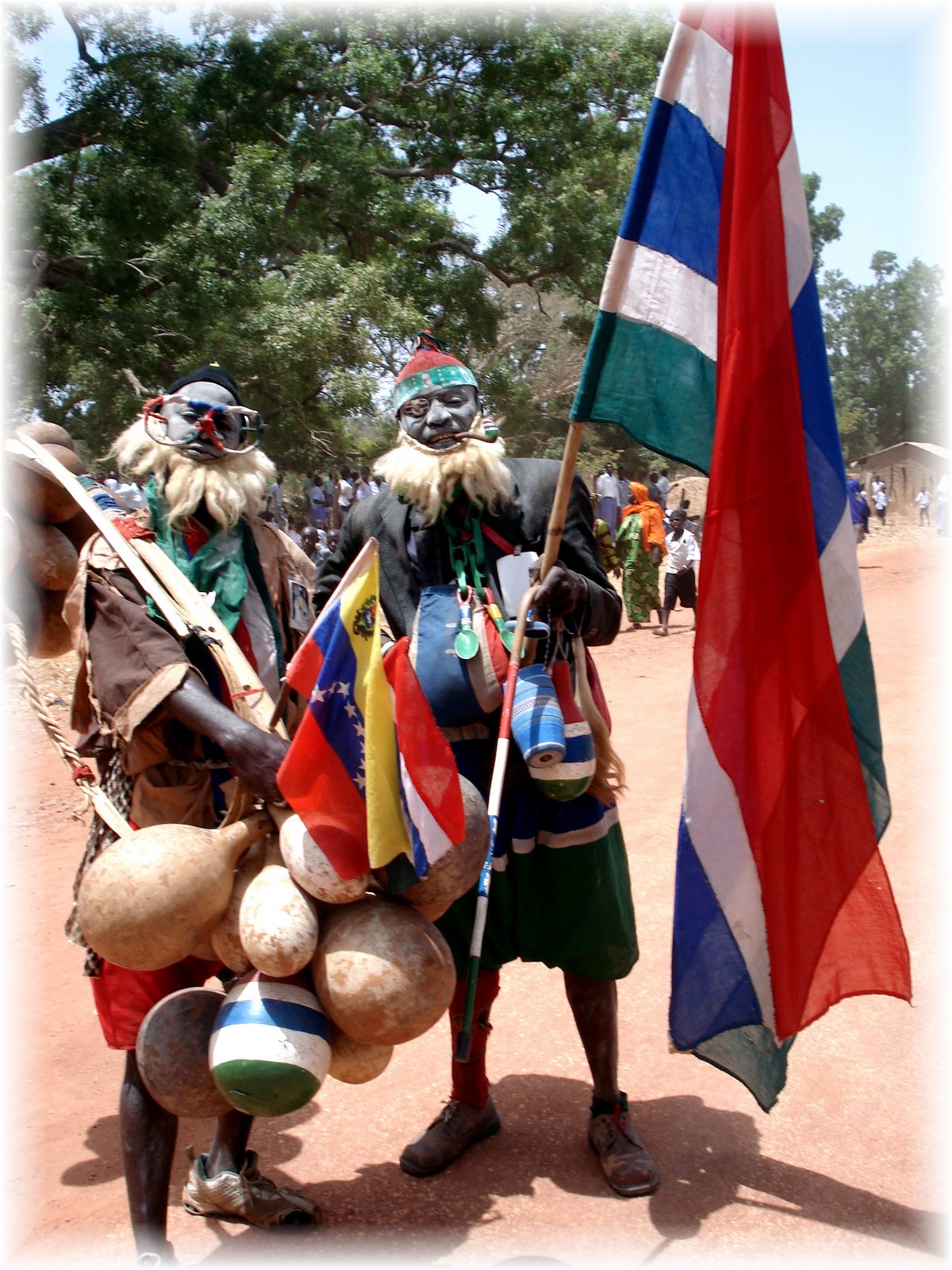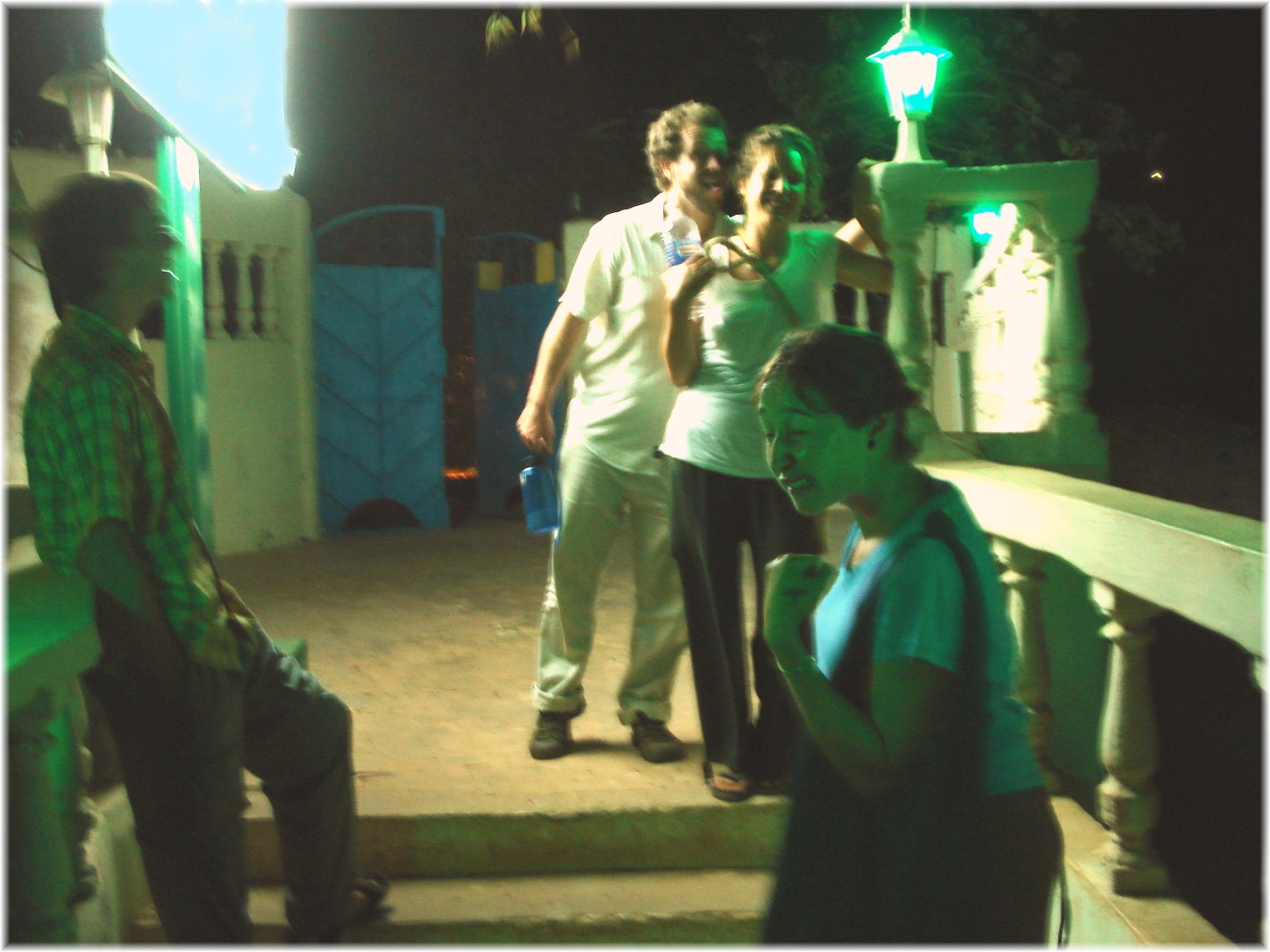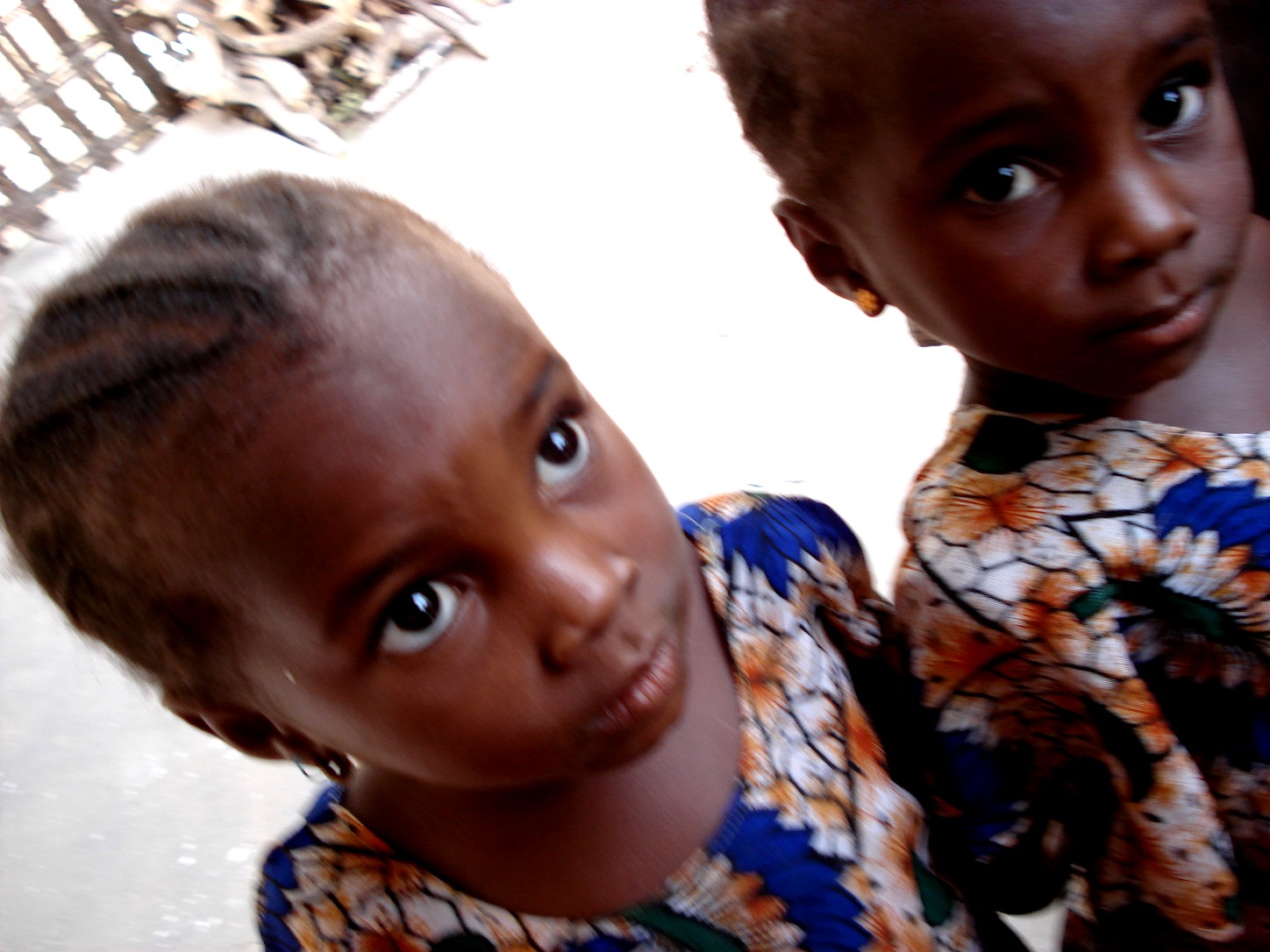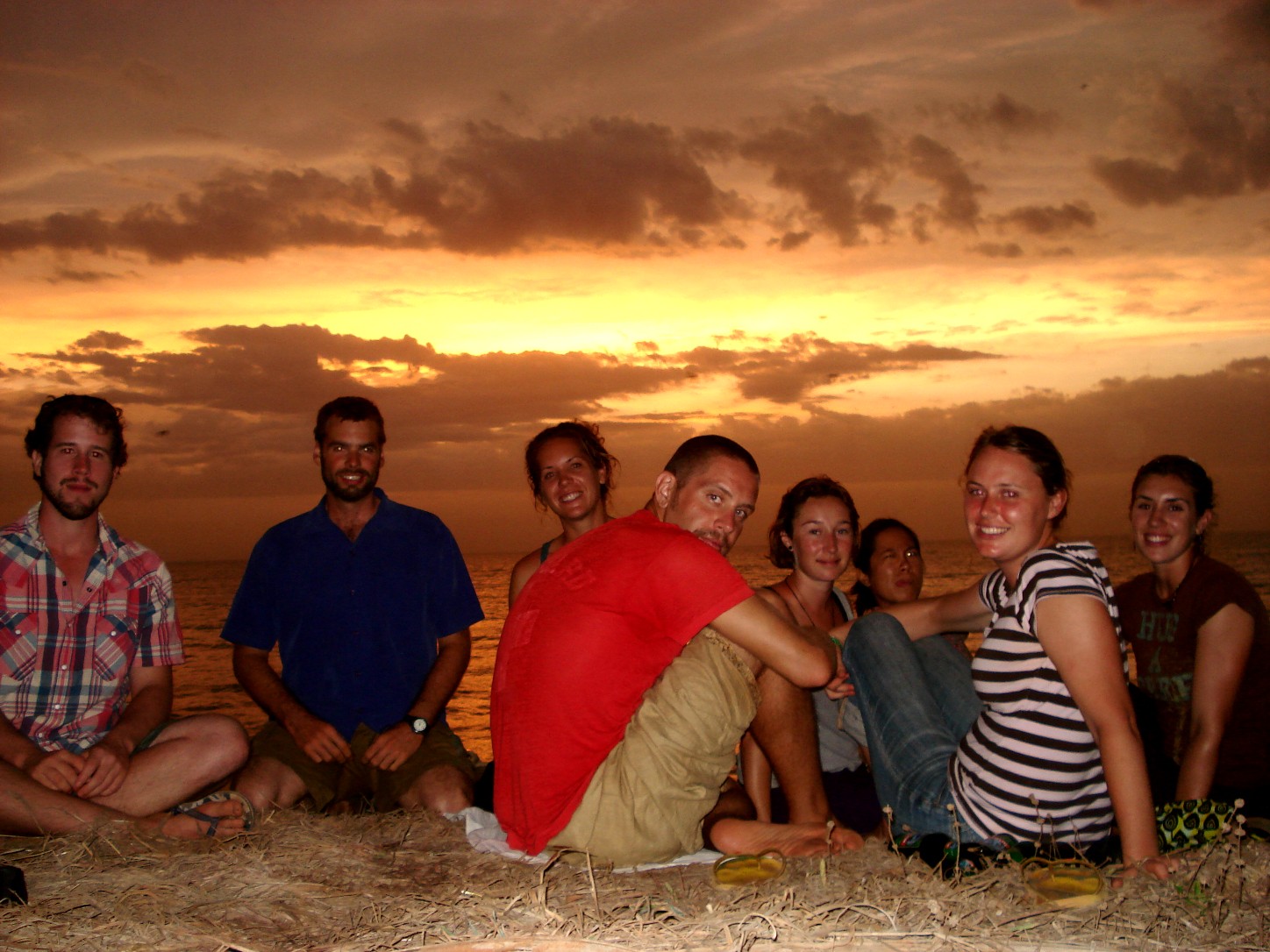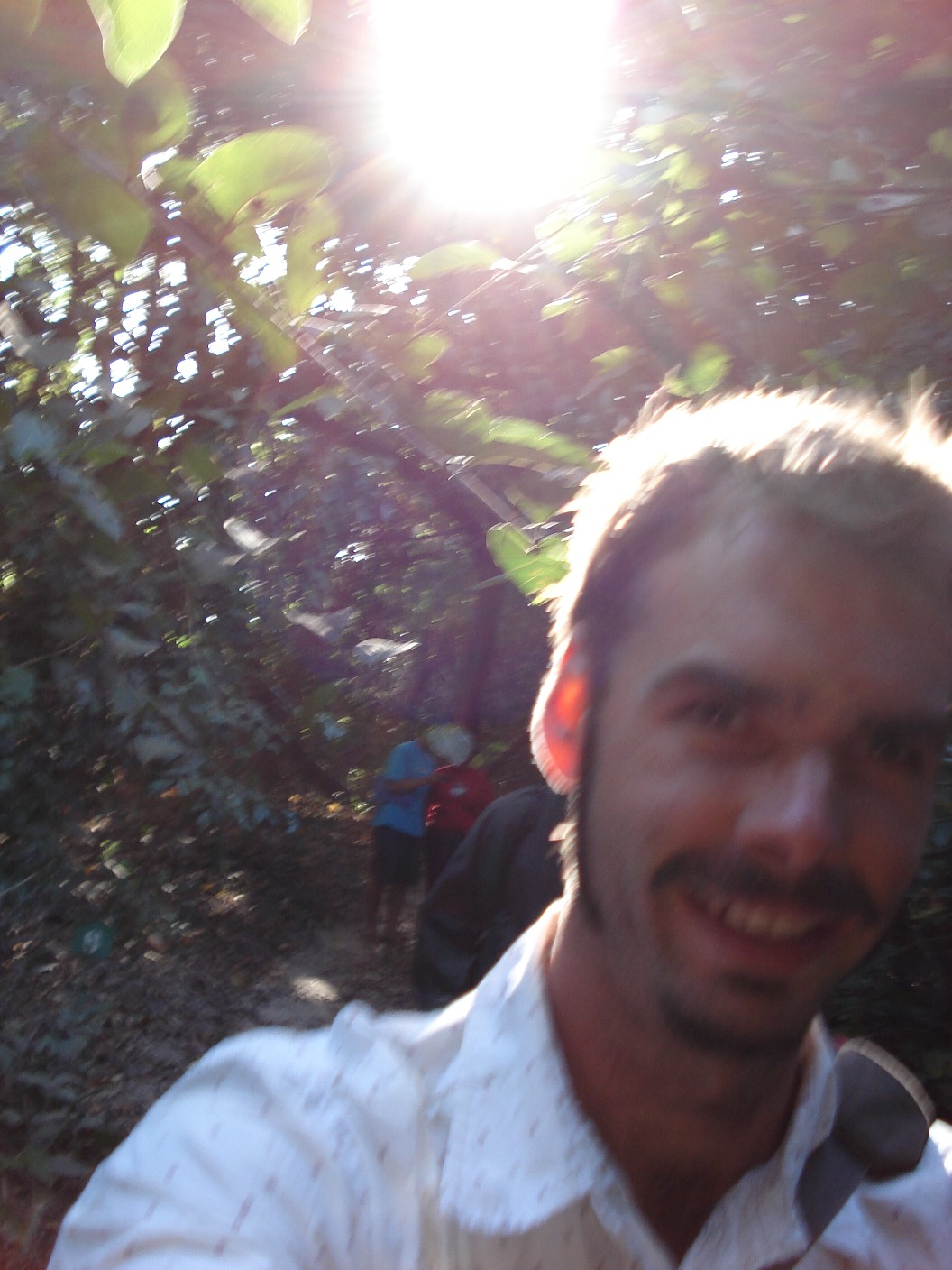After a competitive application process stressing applicant skills, adaptability, and cross-cultural understanding, Mr. Traucht was invited into Peace Corps service in The Gambia, West Africa. On September 27, 2007, he began a comprehensive ten-week training program centered on local language acquisition, culture, and technical skills for life in The Gambia. Through technical training (116 hours) and trainee directed activities (20 hours), Mr. Traucht obtained a greater understanding of the environmental challenges faced in The Gambia, and of proactive agro-forestry practices to combat these issues. His training also addressed improved agriculture and horticulture techniques, natural resource management strategies, and formal as well as informal environmental education skills.
Language training (150 hours) included formal classes in Pulaar and informal daily lessons with the residents of his training village. By the end of training he established a fluency degree of Intermediate in Pulaar; by the completion of service his language proficiency was graded Advanced in Pulaar and Novice in Mandinka.
Cross-cultural training (20 hours) was formally conducted in a classroom setting and supplemented with group discussions with other trainees and Peace Corps staff. Living with a Fula host family in his training village further enhanced the training experience. This training increased his awareness and understanding of Gambian culture, informed him of the history and politics of The Gambia, Islam in the Gambian context, traditional beliefs and taboos, gender roles, and non-verbal communication.
Health sessions (30 hours) included preventative health measures, self-diagnosis, basic medical treatment, and outlined Peace Corps medical policies. Safety and security sessions (8 hours) emphasized how to adopt a lifestyle that reduces risk at home, work, and during travels as well as dealing with unwanted attention and emergency evacuation from village. All training lessons were reinforced and put into practice in daily village life through interaction with the host family.
On December 7, 2007, Matthew Traucht was sworn in as a United States Peace Corps Volunteer in the Environment and Natural Resource Management Sector. He was placed in the rural farming village of Chewel, a small Fula village consisting of fewer than 100 people in eight family compounds, located in the Western Region two kilometers from the Senegal-Gambia border. There he helped rural residents plan and develop sustainable projects and liaised with local extension workers on agricultural projects.
Working with life sciences teachers and an extension worker from the Forestry Department, Mr. Traucht led environmental education classes at Kampasa Lower Basic School and at Wassadung Basic Cycle School. These classes met twice monthly to discuss current events and environmental issues (deforestation, gardening, and village sanitation) and to conduct practical work (construct mud stoves, collect tree seeds, participate in community clean-up). Mr. Traucht worked with both schools in their gardens and encouraged them to participate in the national All Schools Tree Nursery Competition. He also helped to organize and facilitate a field trip for some of the students and teachers to a local wildlife preserve.
Mr. Traucht worked in the Chewel women’s garden to introduce composting and intercropping systems. There he maintained several garden beds to study local growing conditions and to demonstrate improved practices. He also maintained a backyard demonstration garden, tree nursery, and half-hectare rice field. Mr. Traucht worked with Peace Corps staff, the Food and Agriculture Organization, and a local n.g.o. to introduce and distribute an improved rice variety. Matthew encouraged the farmers to save the harvest (more than seven times what was planted) for seed to be planted the following year. He aided local farmers with the sowing, maintaining, harvesting, and processing of local subsistence crops including rice, millet, maize, sorghum, squash, beans, and groundnuts. Matthew advocated that farmers implement perennial field crops and fruit trees into their agricultural systems. He informed the farmers about soil improvement techniques including composting, alley-cropping with leguminous trees, intercropping, and the use of bio-char.
Mr. Traucht also assisted the citizens of Chewel in home construction using natural materials (thatch roof, mud block), promoted improved mud-stoves to reduce the need for fuelwood, and engaged in soil protection initiatives including erosion control and rain-water diversion. Working with Christian Children’s Fund and the European Commission, Matthew labored on a well-digging project which eventually resulted in a clean drinking water source within the village thus eliminating the need for residents to collect water from a neighboring village. He participated in community clean-up projects and battery disposal drives. Matthew maintained a tree nursery with community members and liaised with Department of Forestry officials to bring woodlot trees including eucalyptus, mahogany, and gmelina trees. These trees will be maintained to protect the watershed near the village and for eventual income generation.
Mr. Traucht worked with the Mankana Development Association comprised of over 1000 members from seven local villages in The Gambia and five in neighboring Senegal. His primary assistance involved helping to establish, construct, and maintain a market pavilion for the weekly local trade of garden products, livestock, and honey. He also liaised between the Mankana Development Association and Concern Universal extension agents to establish a link with credit unions and to bring agricultural training to the area.
Mr. Traucht was very active with beekeeping activities throughout the Mankana area and he also worked with the National Beekeeper’s Association of The Gambia (NBAG) and Sifoe Beekeeping Kaafo in the metropolitan area known as Kombo. He worked with community members to establish the Mankana Agroforestry and Beekeeping Association (MABA). He taught the members of MABA about general biology, bee pollination to increase crop yields, and improved beekeeping practices. Mr. Traucht encouraged MABA to acquire a small parcel of land to establish a community apiary and helped them construct ten Kenyan Top Bar Hives to be placed in the apiary along with the planting of bee-fodder trees. In addition, he worked with several members to weave traditional grass hives providing skills transmission by linking young people with experienced weavers thus resulting in income generation through the on-going sales of those hives.
For the National Beekeeper’s Association of The Gambia, Mr. Traucht provided technical support as their apiary manager. He identified and offered solutions for problems in the apiary including pest control, yield improvement, colony division, and improved harvesting and processing techniques. Mr. Traucht wrote and submitted a grant to Concern Universal for research and development of beekeeping; the grant was approved in 2008. He liaised between NBAG and several aid organizations including Mondo Challenge (U.K.), Concern Universal, US Peace Corps, and the U.K. based charity Feed the Minds. In 2008, he worked on the preparation and implementation of the $10,000 Feed the Mind’s funded Freebee Training to introduce and advance beekeeping in twelve rural Gambian villages. He aided in securing and managing the funding, designed the training materials and syllabus, and implemented the training sessions with more than 300 participants.
In May 2009, Mr. Traucht changed his residence from his small Fula village to the large Mandinka town of Gunjur with a population of more than 20,000 people. He made this move in order to focus on his beekeeping projects at NBAG and Sifoe. He was promoted to NBAG’s National Coordinator of the Freebee Training which involved conducting two more modules in those twelve villages, researching local traditions and beliefs, advising on current and future beekeeping initiatives, and reportage to Feed the Minds. Matthew was responsible for hiring and paying Gambian trainers, organizing lesson-plans, and arranging all travel aspects to the rural training sites. He also produced a training manual with photographic illustrations to be distributed to Gambian beekeepers. Mr. Traucht worked with individuals from the U.K. and The Gambia to establish an n.g.o. called Gambia BeeCause which aims to continue research initiatives and training programs. At the Sifoe Beekeeping Kaafo, Mr. Traucht conducted beekeeping trainings and improved production and management.
Mr. Traucht participated as Peace Corps Volunteer Technical Trainer in one Pre-Service training and two In-Service trainings. He instructed Gambian Host Country Nationals and Peace Corps Volunteers from The Gambia, Senegal, and Guinea on gardening, tree and crop identification, soil improvement, appropriate technology, beekeeping, and food security. He was responsible for developing training materials to meet Peace Corps rigorous knowledge, skills, and assessment guidelines. Mr. Traucht revised Peace Corps The Gambia’s beekeeping manual by adding several new sections of technical instruction, traditional practices, and project ideas.
Throughout his service, Mr. Traucht wrote a number of technical articles for the Environment Sector newsletter and served as the co-editor in 2009. He was instrumental in the pre-production (research, writing, props), production (camera work, acting), and post-production (editing using Final Cut Pro) of six technical training videos. These videos, which are posted on-line for volunteers to view, serve as teaching aids of such agricultural practices as composting, garden bed preparation, plant care and transplanting, income generation, and beekeeping. Mr. Traucht served as the Volunteer Support Network (VSN) liaison for the Western Region in 2008 and 2009. He also participated in the international Against Malaria campaign by raising over $400 to purchase mosquito nets for rural Gambians. He posted regular updates to his internet site to satisfy the Peace Corps Third Goal of describing to Americans what life is like for a Volunteer in West Africa.






















